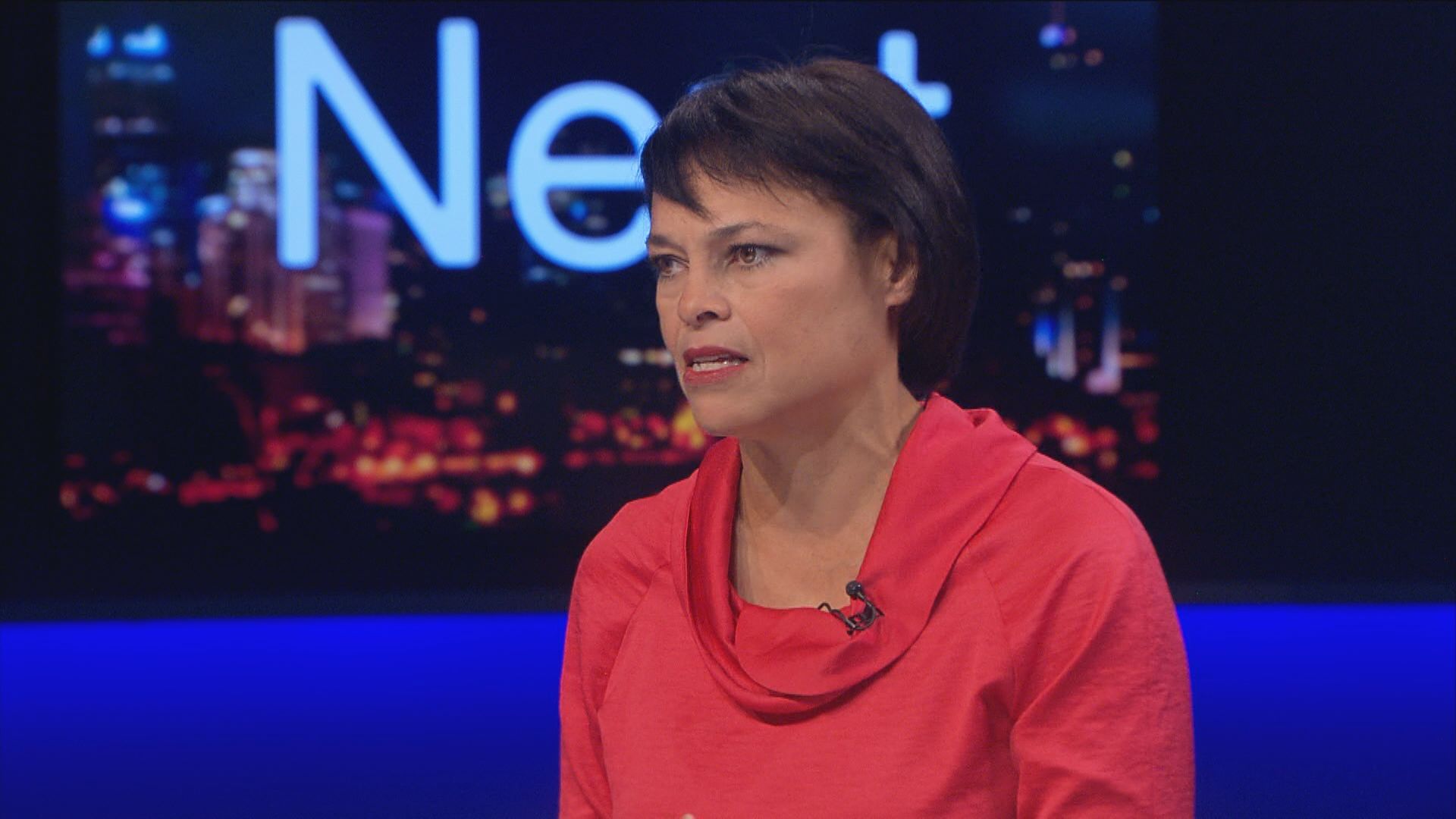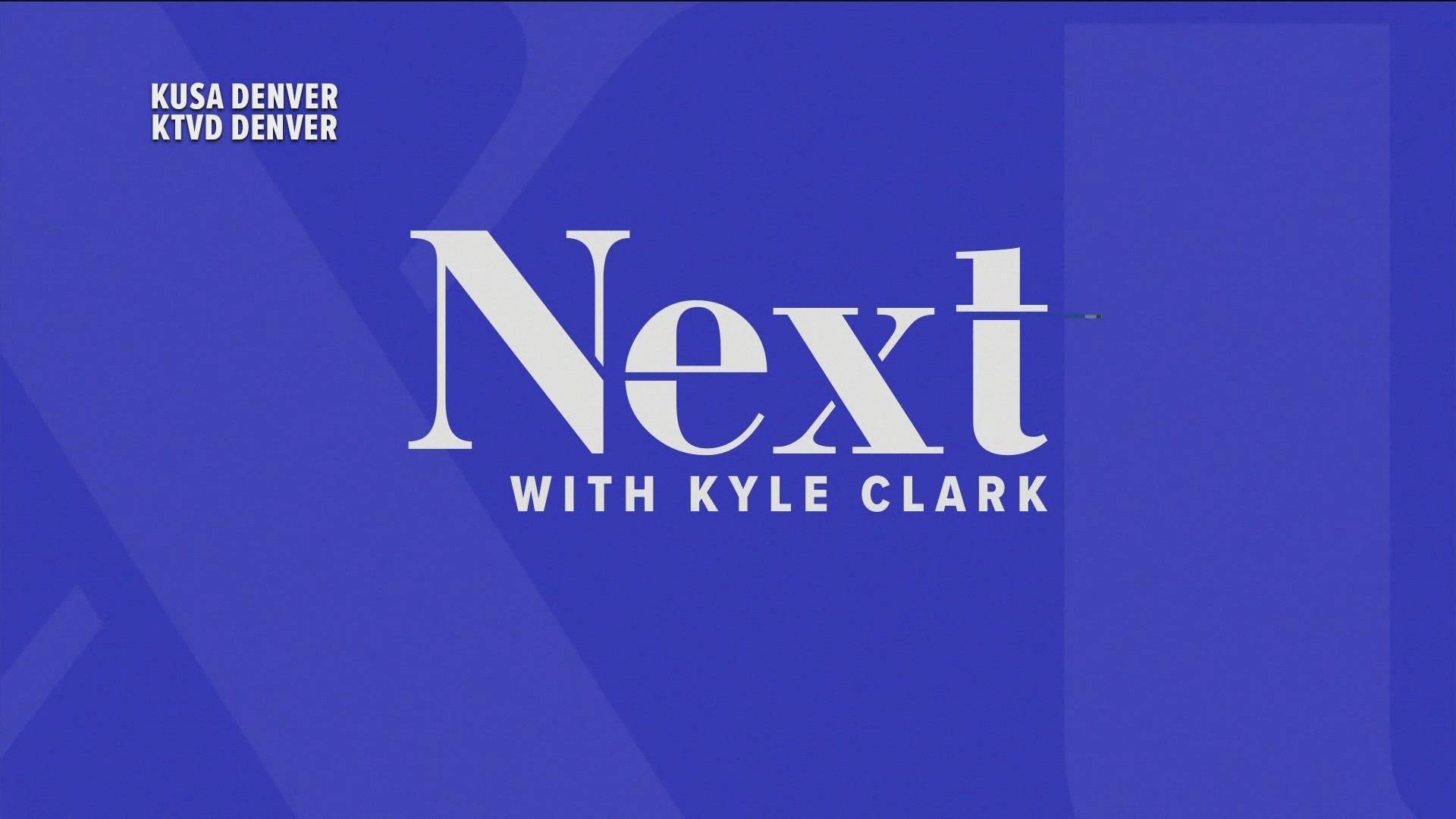Dana Knowles is a familiar face if you've watched 9NEWS for awhile. She was a reporter at the station ten years ago.
Knowles sat down with Next with Kyle Clark to talk about an addiction she struggled with for years.
Q: You have gone public here recently with your struggle with addiction. How did it start and where was your life at that moment?
A: For me, there’s sort of a pattern of the way somebody who is an addict thinks and that thinking pattern starts before you get addicted to the chemical.
For me, I was molested when I was 5, and that sort of switched something off in my brain. I never really developed a sense of individuality. I was always sort of looking from the outside to make myself happy on the inside. And so I would always compare myself to other people and as I got older, I would set goals with the job, getting married, having kids…like looking for these things to fulfill myself and make me happy and ultimately, that didn’t necessarily happen
And so with the addiction what happened with that was I had surgery for a labral tear, I was prescribed a lot of opioids, and basically once I started taking those opioids they did a lot more than alleviate the pain. I discovered that I loved that feeling and all the feelings of isolation and loneliness that I used to have would go away when I took that medication.
Q: People think about a high but you described it as…you were super mom, you were productive, you felt like you had the energy to do whatever you want to do which are all things that we associate with positive outcomes. Not negative outcomes.
A: I think for most people, opioiods make you feel drowsy but for me, they gave me a lot of energy, in the sense of euphoria. You know, being a stay-at-home mom there’s a lot of pressure to do all this stuff, to be perfect, I want my children to be healthy, I want to be healthy so I’m trying to cook dinners, participate in school stuff and do everything that possibly need do and we entertained friends a lot on the weekend and so I think on some level, the medication helped but then it doesn’t help after awhile and you start to need to take it to feel normal and then you go into withdrawal and you realize this is definitely a problem and you know at that time I didn’t know what to do about it. So it continued for a few years.
Q: You got treatment. And then found that you’ve relapsed. It was alcohol that opened the door back and then came the painkillers again. What was the tipping point that is the difference that ensured that you’re here today talking to me about this?
A: I think the tipping point was I realized after I got in to treatment the first time, I had maybe 8 months of sobriety. And they tell you, you can't do anything to alter your mind anymore unless it's just caffeine. But I saw everyone else drinking. And I kept thinking, well alcohol wasn’t really my problem before. I finally was just like you know what...I'm going to see if I can just drink socially. I was fine for about a month and a half. And then alcohol does hit the same part of the brain and when I would feel the alcohol I relapsed because I would get those cravings all over again.
Q: Why have you decided that this is something you want to share with people?
A: For me it helps me let go a lot of the shame. It helps me…its very cathartic. I’m doing it really for selfish reasons. And that’s to help myself let go of the shame.
I don’t want to hold onto it anymore because there’s a ton of shame associated with addiction. And I also kind of want to put a normal face on it to get rid of some of the stigma. I think a lot of people still assume that addicts or alcoholics look a certain way we know these days the statistics are startling with how many people are dying of overdose from opioids. I'm kind of at a point where I feel like I can do something to help myself and other people even if it's just a little bit. If I can get the message out there to tell people it's really really hard to do this work, but if you do it, it's going to be so much better for you.
WATCH full interview with Dana Knowles:
Q: To the people who saw you around town and knew you when you were fighting addiction, what Dana Knowles did they see publicly during that time?
A: I made sure they saw a Dana Knowles who is together. You know I hid it for a long time I didn’t want people to know. It made me feel horrible. I felt like an awful person I did not know how to get out of that. You kick into your survival mode. When I'm out of the house and when I'm around other people who don’t know me or didn’t know what was going on, I would present a certain face to them. That’s what I had to do and that takes a lot of effort. That's exhausting as well. That’s also part of the reason I'm doing this is because some people knew, some people didn’t and I just feel like now everybody knows. There’s no question and they also know I’m moving forward in my life to stay healthy to take care of my family and be there for them and myself in the most healthy way that I know.
Q: I want to ask you about that. Your family. You managed to not only repair your mind or your body, but you’ve repaired some of the riffs in your family. Stayed married, got help for kids, how did that happen?
A: We found out about the program for our kids when I was in treatment...it’s the Betty Ford's Center for Kids, a five day seminar where kids of alcoholic and addicts- whether or not they’re in recovery, kids go to learn about the disease from a kid perspective. They learn that it's not their fault. They learn that it’s not good to hide. They learn that they need to be honest. And they learn they need to express themselves. And feel comfortable expressing themselves that they don’t hold onto stuff. There's a lot more to it than that, but we just felt like we have to do this for our kids. It’s so important.
I know, having met a lot of other people in recovery, when children are exposed to this kind of thing, it doesn’t necessarily create a healthy adulthood for them so we’re trying to do everything we can to ensure that they can be healthy.
Q: We were talking about the immense pressure specifically for mothers…”the relentless pursuit for perfection” Do you feel like that contributed to what you were dealing with?
A: A lot of it, absolutely. And sort of this pressure to be this perfect mom. You’re sort of as a mom expected to be engaged and happy and signing up for things at school and I think it’s good to participate but also find what’s comfortable for you. It’s okay to make mistakes. It was not okay before for me to make a mistake if I did, I tore myself about it and felt guilty. There’s so much pressure to have perfect kids, all these activities, you’ve got to make sure they never eat an ounce of sugar. Its just so much and I had to let go of a lot of that so that I can work hard and be healthy for myself. The thing is your kid is going to be okay if they have a donut or a muffin once in awhile.
Q: Do you miss the TV business? I saw you say that after you left the business that not only had the pressure started to wear you down but you also didn’t like the cynicism that it brought out in you.
A: I do. I miss the team work. I loved my favorite part was working with photographers and producers, putting together a story, brainstorming…I loved being in the field. I miss that part, but I don’t miss the multiple deadlines a day that did start to get to me.
If you are struggling with addiction, here is a list of resources: http://on9news.tv/2kOkcsz


